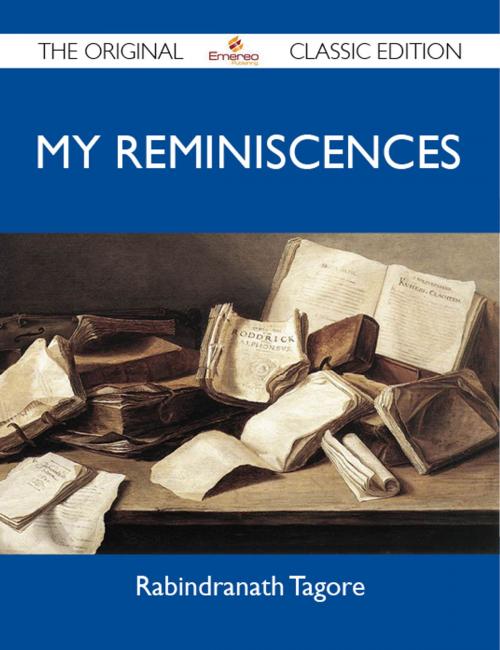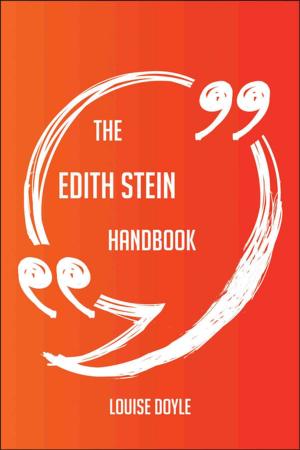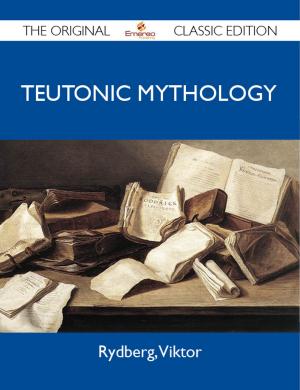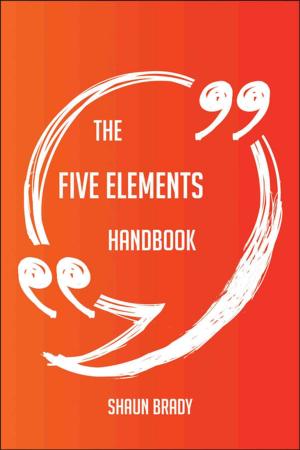My Reminiscences - The Original Classic Edition
Nonfiction, Reference & Language, Reference, Fiction & Literature| Author: | Tagore Rabindranath | ISBN: | 9781486415656 |
| Publisher: | Emereo Publishing | Publication: | October 24, 2012 |
| Imprint: | Emereo Publishing | Language: | English |
| Author: | Tagore Rabindranath |
| ISBN: | 9781486415656 |
| Publisher: | Emereo Publishing |
| Publication: | October 24, 2012 |
| Imprint: | Emereo Publishing |
| Language: | English |
In Sabuj Patra, Tagore expressed his revolutionary view on society and political situations of contemporary times through his fiction and prose. Haimanti and Streer Patra caused a frown of contemporary Bengali society as well as his essays Bastab and Lokohito were severely attacked in conservative journals like Sahitya and Narayan.
These Reminiscences were written and published by the Author in his fiftieth year, shortly before he started on a trip to Europe and America for his failing health in 1912. It was in the course of this trip that he wrote for the first time in the English language for publication.
In these memory pictures, so lightly, even casually presented by the author there is, nevertheless, revealed a connected history of his inner life together with that of the varying literary forms in which his growing self found successive expression, up to the point at which both his soul and poetry attained maturity.
This lightness of manner and importance of matter form a combination the translation of which into a different language is naturally a matter of considerable difficulty. It was, in any case, a task which the present Translator, not being an original writer in the English language, would hardly have ventured to undertake, had there not been other considerations. The translators familiarity, however, with the persons,vi scenes, and events herein depicted made it a temptation difficult for him to resist, as well as a responsibility which he did not care to leave to others not possessing these advantages, and therefore more liable to miss a point, or give a wrong impression.
The Translator, moreover, had the authors permission and advice to make a free translation, a portion of which was completed and approved by the latter before he left India on his recent tour to Japan and America.
In regard to the nature of the freedom taken for the purposes of the translation, it may be mentioned that those suggestions which might not have been as clear to the foreign as to the Bengali reader have been brought out in a slightly more elaborate manner than in the original text; while again, in rare cases, others which depend on allusions entirely unfamiliar to the non-Indian reader, have been omitted rather than spoil by an over-elaboration the simplicity and naturalness which is the great feature of the original.
There are no footnotes in the original. All the footnotes here given have been added by the Translator in the hope that they may be of further assistance to the foreign reader.
In Sabuj Patra, Tagore expressed his revolutionary view on society and political situations of contemporary times through his fiction and prose. Haimanti and Streer Patra caused a frown of contemporary Bengali society as well as his essays Bastab and Lokohito were severely attacked in conservative journals like Sahitya and Narayan.
These Reminiscences were written and published by the Author in his fiftieth year, shortly before he started on a trip to Europe and America for his failing health in 1912. It was in the course of this trip that he wrote for the first time in the English language for publication.
In these memory pictures, so lightly, even casually presented by the author there is, nevertheless, revealed a connected history of his inner life together with that of the varying literary forms in which his growing self found successive expression, up to the point at which both his soul and poetry attained maturity.
This lightness of manner and importance of matter form a combination the translation of which into a different language is naturally a matter of considerable difficulty. It was, in any case, a task which the present Translator, not being an original writer in the English language, would hardly have ventured to undertake, had there not been other considerations. The translators familiarity, however, with the persons,vi scenes, and events herein depicted made it a temptation difficult for him to resist, as well as a responsibility which he did not care to leave to others not possessing these advantages, and therefore more liable to miss a point, or give a wrong impression.
The Translator, moreover, had the authors permission and advice to make a free translation, a portion of which was completed and approved by the latter before he left India on his recent tour to Japan and America.
In regard to the nature of the freedom taken for the purposes of the translation, it may be mentioned that those suggestions which might not have been as clear to the foreign as to the Bengali reader have been brought out in a slightly more elaborate manner than in the original text; while again, in rare cases, others which depend on allusions entirely unfamiliar to the non-Indian reader, have been omitted rather than spoil by an over-elaboration the simplicity and naturalness which is the great feature of the original.
There are no footnotes in the original. All the footnotes here given have been added by the Translator in the hope that they may be of further assistance to the foreign reader.















